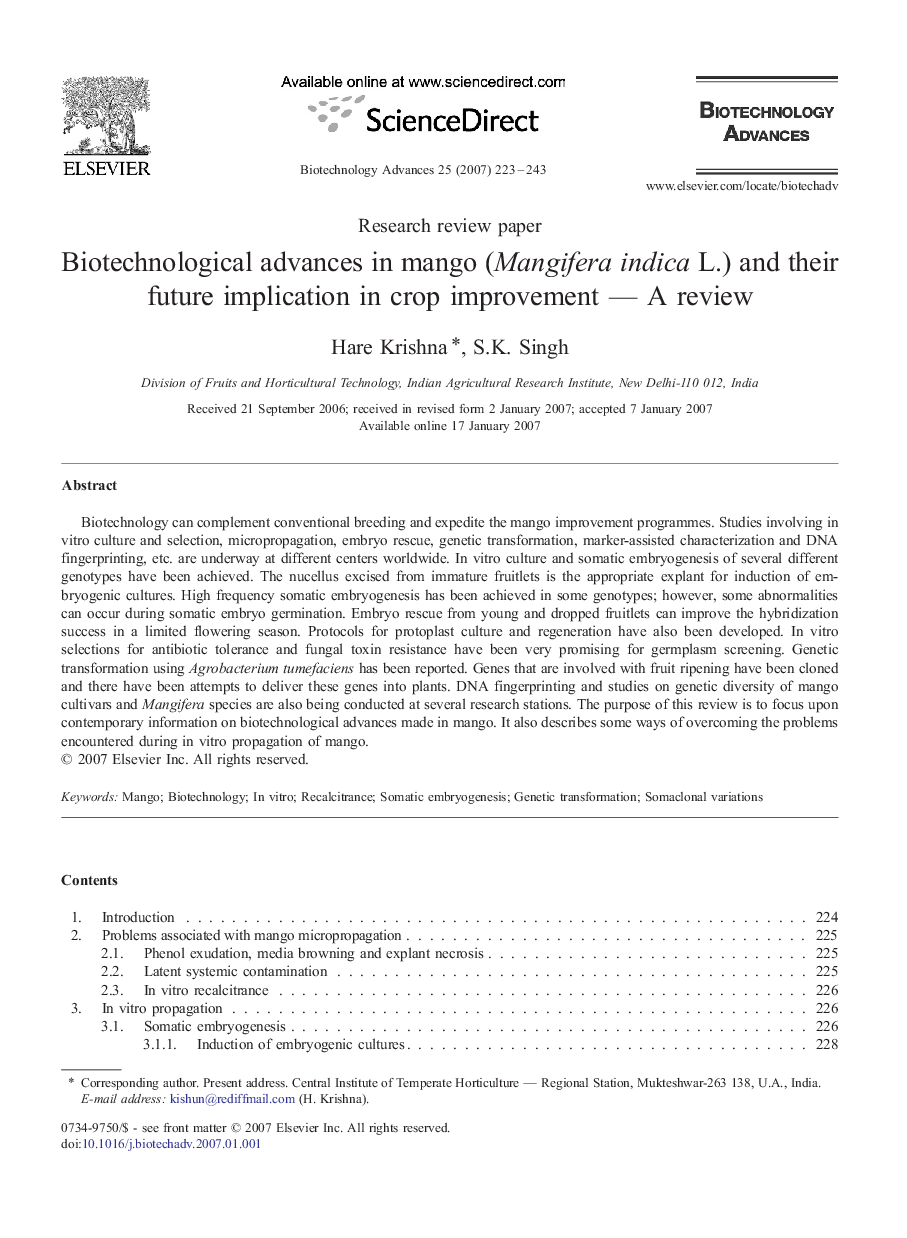| Article ID | Journal | Published Year | Pages | File Type |
|---|---|---|---|---|
| 14832 | Biotechnology Advances | 2007 | 21 Pages |
Biotechnology can complement conventional breeding and expedite the mango improvement programmes. Studies involving in vitro culture and selection, micropropagation, embryo rescue, genetic transformation, marker-assisted characterization and DNA fingerprinting, etc. are underway at different centers worldwide. In vitro culture and somatic embryogenesis of several different genotypes have been achieved. The nucellus excised from immature fruitlets is the appropriate explant for induction of embryogenic cultures. High frequency somatic embryogenesis has been achieved in some genotypes; however, some abnormalities can occur during somatic embryo germination. Embryo rescue from young and dropped fruitlets can improve the hybridization success in a limited flowering season. Protocols for protoplast culture and regeneration have also been developed. In vitro selections for antibiotic tolerance and fungal toxin resistance have been very promising for germplasm screening. Genetic transformation using Agrobacterium tumefaciens has been reported. Genes that are involved with fruit ripening have been cloned and there have been attempts to deliver these genes into plants. DNA fingerprinting and studies on genetic diversity of mango cultivars and Mangifera species are also being conducted at several research stations. The purpose of this review is to focus upon contemporary information on biotechnological advances made in mango. It also describes some ways of overcoming the problems encountered during in vitro propagation of mango.
